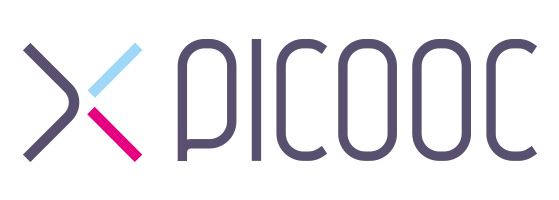The more body indicators you measure, the better you will know about your physical fitness
The PICOOC Smart Scale can accurately measure more than 20 body indicators, which are twice as many as other products on the market. What do they all represent? What do they mean for body size and health?

Key indicators

Body weight
Measure your weight in pounds or kilos
Body fat
Learn exactly what percentage of your weight is fat
Muscle
The percentage of muscle in body weight. Muscle rate determines a person's physical fitness and strength
Body water
Know if you are properly hydrated
BMR
Know the number of calories your organs need to function while you perform no activity
BMI
Body mass index, which can be used to calculate the degree of fatness and thinness of the human body according to weight and height through a formula, and evaluate whether it is in a healthy state.
Protein
Protein is one of the main components of the human body and is mainly involved in various metabolic processes of the body to ensure the growth, development, reproduction, genetics, and energy supply of the body.
Visceral fat index
Helps you monitor fat accumulation around organs.
Bone mass
Bone mass refers to bone volume, which is an indicator of bone density, that is, how much bone is in a unit volume and how much mineral content is there. Helping you learn more about your body foundation.
Skeletal muscle
Muscles are attached to bones and tendons. Skeletal muscle contraction drives tendons, pulls bones, and completes limb movements. Almost all skeletal muscles are directly controlled by the brain, and their importance in the human body is self-evident. Knowing skeletal muscles is very helpful for understanding the functional structure of the body.
Body type
Analyze your body type based on your weight-muscle-to-fat ratio to determine if you are lean, overweight, or within the normal range.
Physical age
Calculate the age of your body by comparing your multiple indicators with a database of body signs. If the reading is older than your chronological age, you should increase your physical activity.
Physical Health Indicators

Body score
A measure of your fitness level. The higher the score, the lower the risk of metabolic disease
Lean mass
Lean body mass is the weight of body components other than fat, of which muscle is the main part.
Fat mass
Fat mass is the weight of your body's fat.
Muscle storage capacity level
It represents the body's ability to store muscle. People with low muscle storage capacity, even if they build a lot of muscle, will lose muscle quickly after a break in fitness.
Resting heart rate
The number of heartbeats per minute when the human body is awake, inactive, and at rest. Generally, a lower resting heart rate means healthier heart and blood vessels and a longer life expectancy.
Balance ability test
Balance ability is a kind of physical fitness, which refers to the ability to resist external forces that disrupt balance in order to keep the whole body in a stable state. It can be said that almost any exercise of human beings is carried out in the state of maintaining the balance of the body, especially the activities of large muscles, which require better balance ability to be competent.
BV (Body vitality index)
Reflects the current nutritional status, immunity, and vitality level of your body. When the index level is low, it means that the nutritional status and energy status are poor, and the immune level has a downward trend. Please pay attention to nutrition and rest.
Fitness Indicators

Ideal Body weight
Based on the principle of prolonging life and promoting health, the ideal value is calculated according to the individual's body shape, height, and weight.
Ideal Body fat percentage
A body fat percentage that is too high or too low is not good for the body. Ideal body fat percentage means a fitter body and a healthier body.
Ideal Muscle percentage
This means a better body, better health, and better metabolic capacity.
Standard BMR
It represents the energy consumption to maintain the most basic life activities of the body. When it exceeds a certain range of normal values, it can be judged that it is in an unhealthy state.
Body weight control amount
The difference between the current weight and the target weight. Achieving a healthy weight through dietary adjustments, changes in living habits, reasonable exercise, etc.
Body fat control amount
Difference between current body fat and target body fat
Muscle control
The difference between the current muscle and the target muscle
Budget calories
Optimal daily food caloric intake values are tailored for each individual by a panel of experts. Ensuring that your calorie intake meets your body's needs while helping you achieve a healthy weight.
Body circumference
Body dimensions such as waist, hips, chest, upper arms, thighs, calves, etc.
*Different models of PICOOC smart scales can measure different numbers of body indicators. Please refer to the product details page for details.




1 comment
Vlad
How is calculated body vitality index? Thanks.
Leave a comment
This site is protected by hCaptcha and the hCaptcha Privacy Policy and Terms of Service apply.